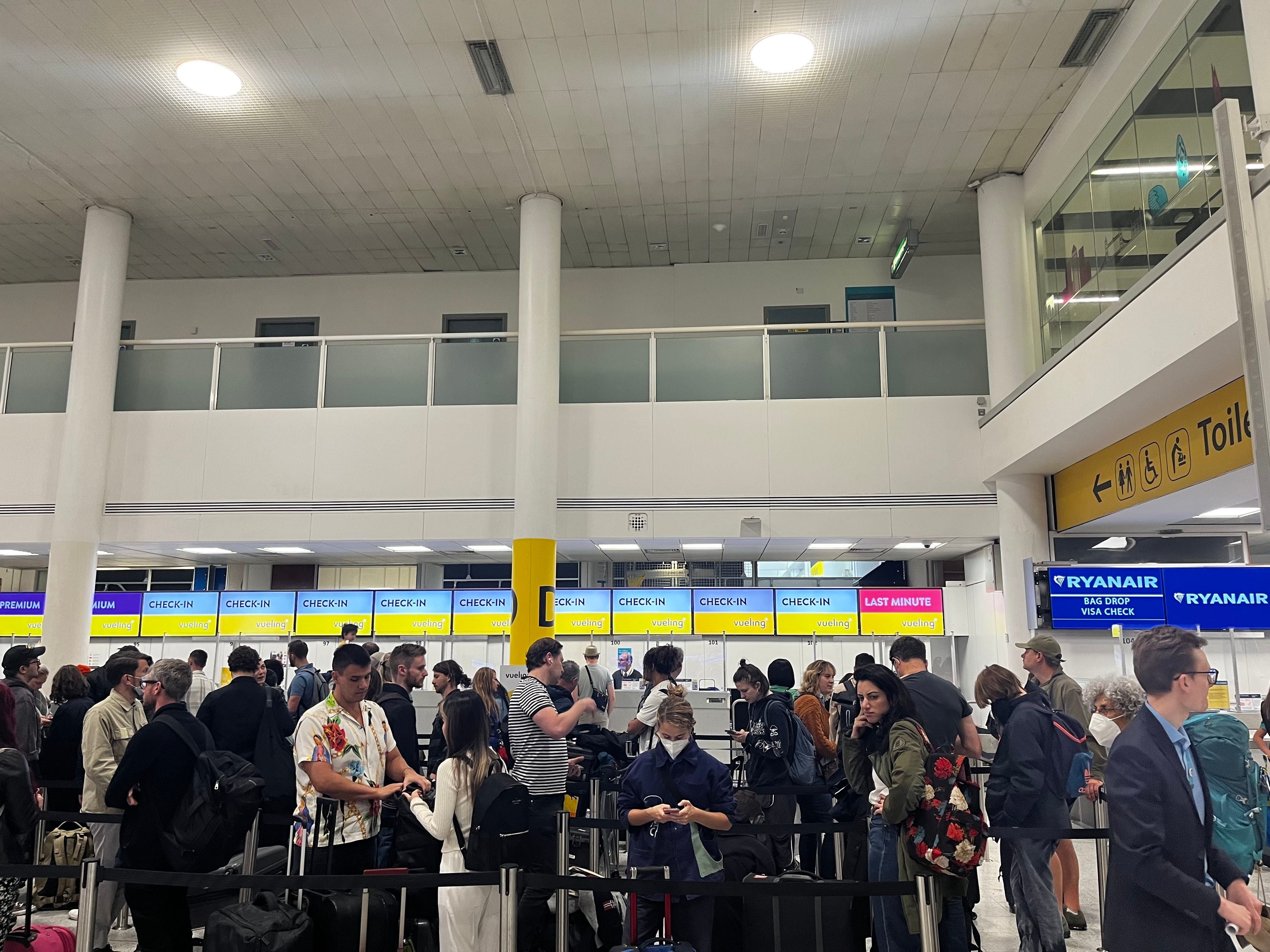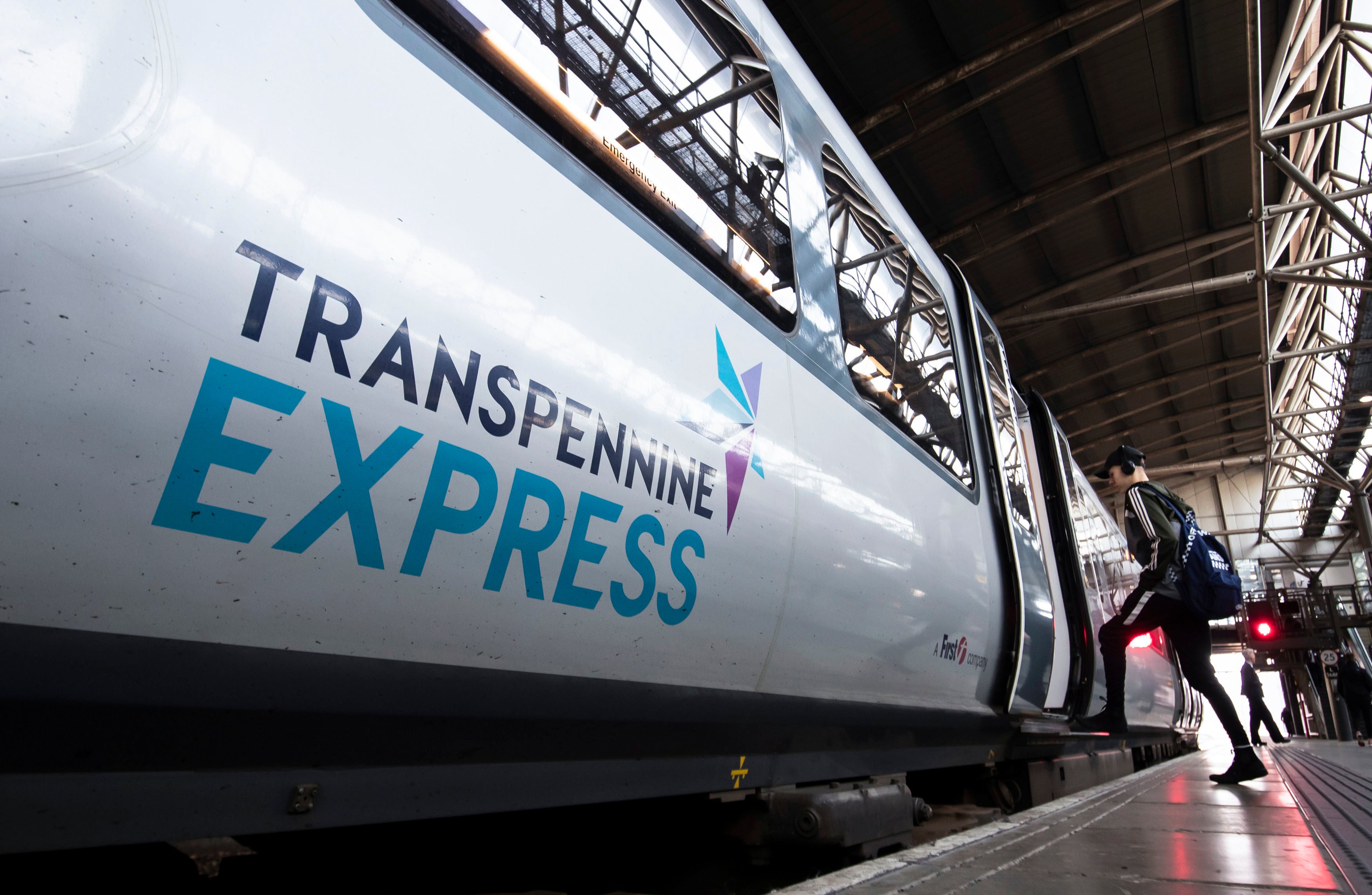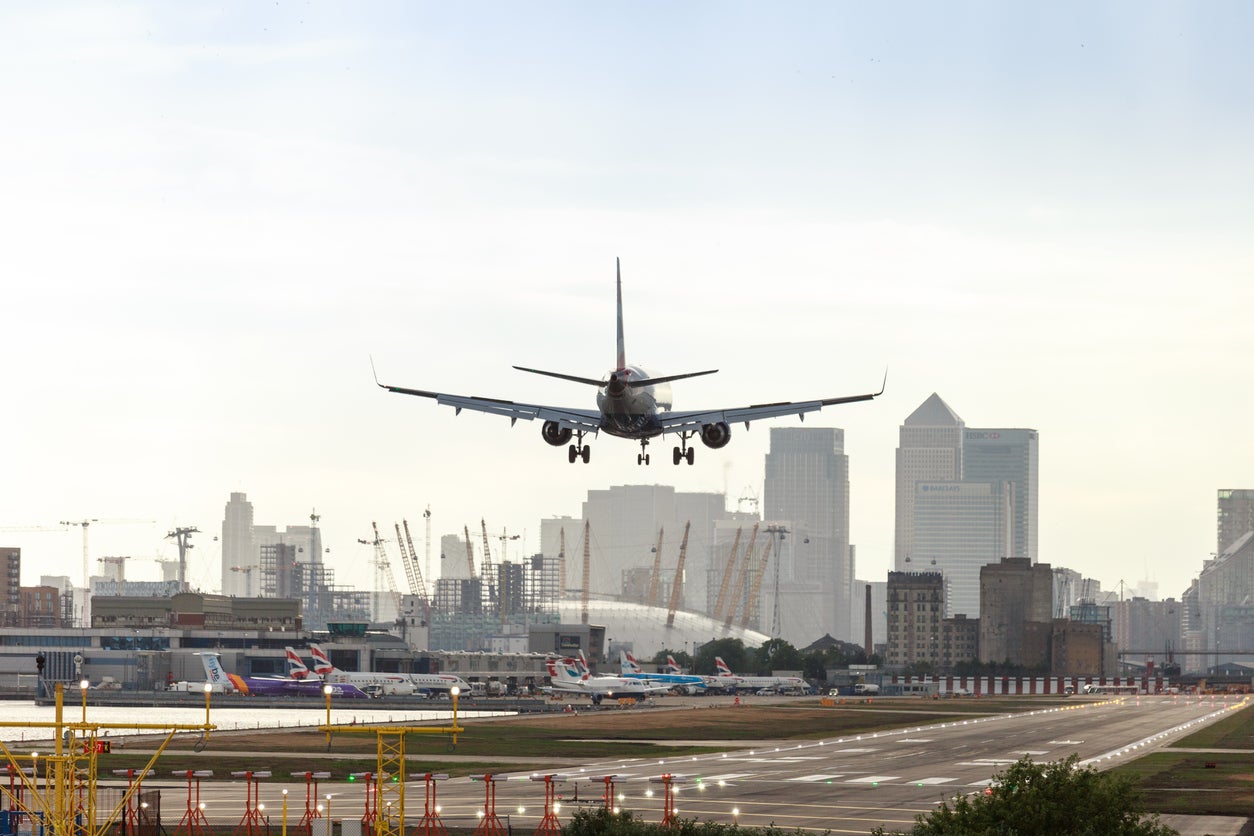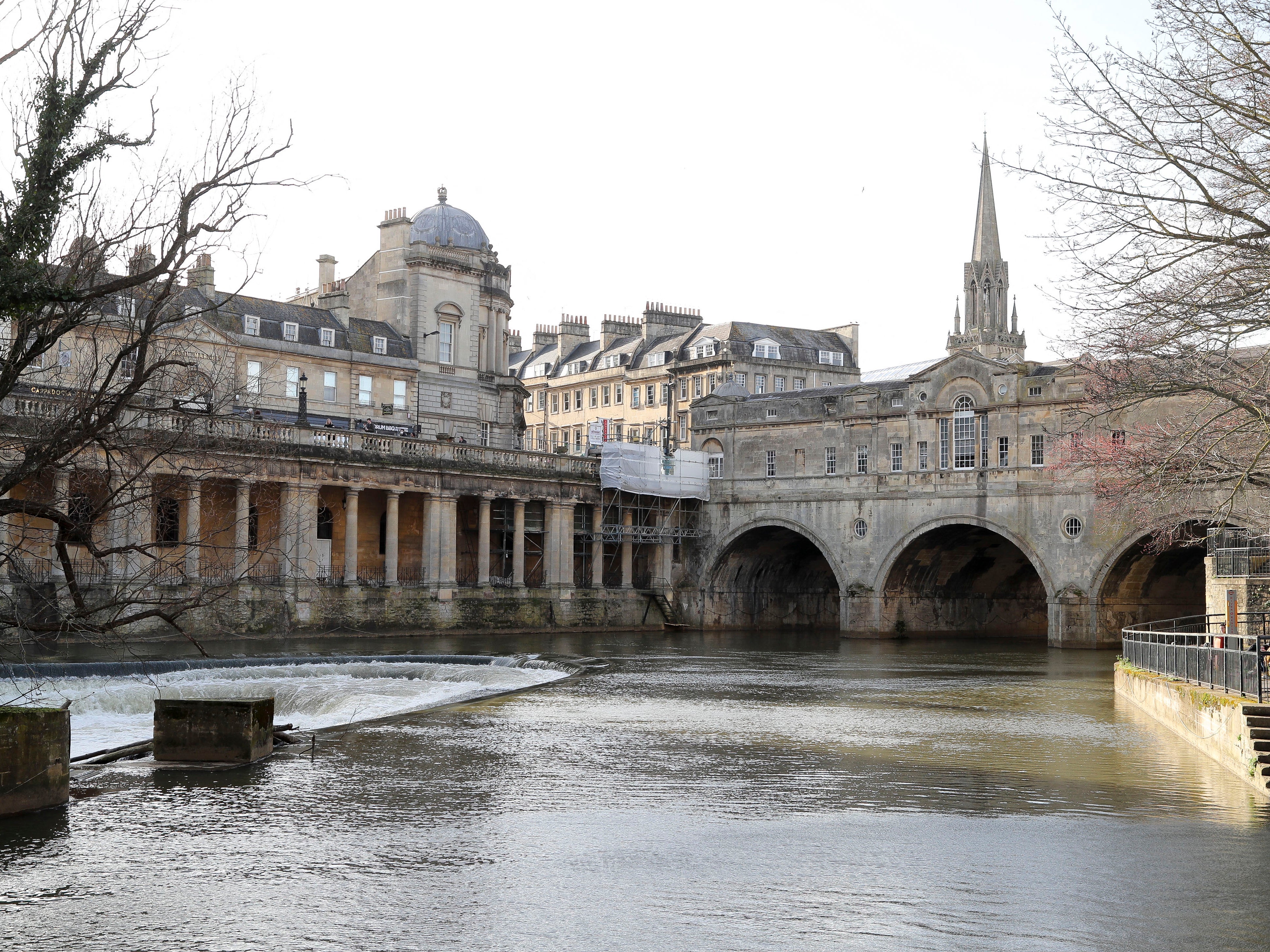Will an airline pay for the hotel if a flight’s cancelled?
Simon Calder answers your questions on compensation and the rail strikes set for the end of June


Q If an airline cancels your flight, how do you actually make it fulfil its statutory obligations to get you to your destination or provide a hotel? Everything I’m seeing and hearing suggests they simply “hardball” you and do nothing to help. Better to take ownership, book yourself and reclaim?
Marty 78
A Even when cancellations are being made on an industrial scale, you need to give the airline every chance to meet its obligations under the European air passengers’ rights rules: to provide an alternative flight as soon as possible, and hotel accommodation while you wait. The cancellation message should contain a rebook link – though this will look only at the airline’s own services. If an alternative flight on the cancelling carrier is available on the same day, you will need to accept it (or claim a full refund).
Similarly, for hotel accommodation there should be a link on the cancellation message from the airline taking you through to a room allocation service. If this does not deliver then yes, take ownership.
The cancelling carrier should pay all reasonable costs associated with the journey that it obliged you to take. The key word there is “reasonable”. For example, if you parked your car in Manchester but can only get a flight to Liverpool, it is incumbent on you to mitigate costs. As a decent rail link exists, fare £19, a £95 taxi to Manchester airport would be reasonable only if there are five or more in the party.
Airlines are not obliged to pay for alcohol, obviously – except inadvertently, in the unusual case that only an all-inclusive hotel is available. Therefore it is reasonable (to use that term again) for the carrier to demand itemised expenses, and I urge you to keep as detailed a record as you can; a receipt for a credit card transaction could well be rejected.

Q We are due to fly from Manchester airport on 23 June. We were planning to get there by train and already have our tickets. What are our options if the train is cancelled please?
Allan 1950
A After members of the RMT rail union voted 8:1 in favour of strike action over jobs, pay and conditions, their union has called nationwide rail strikes for three dates in late June: 21, 23 and 25 June. The industrial action involves Network Rail staff and workers with 13 train operators, including Northern Rail and TransPennine Express, the firms serving Manchester airport.
The Rail Delivery Group says: “The rail industry is currently working on implementing its contingency plans to minimise customer disruption as much as possible.
“In the meantime we encourage passengers who need to travel on Tuesday 21, Thursday 23 and Saturday 25 June to make alternative travel arrangements, or allow more time to make your journey.”
I think the last part of that statement – “allow more time to make your journey” – gives the misleading impression that a journey between any two stations could be made on the strike day. The reality will be very different. Signallers are going on strike, which drastically reduces the scope for running trains. While managers and qualified back-up staff will be stepping in, they are likely to be able to cover only around 20 per cent of the network – and even then possibly for only 12 hours per day, from around 7am to 7pm.
The lines they will operate will be the main intercity lines from London – the East Coast, West Coast and Great Western routes – plus commuter networks around the big cities. The number of trains will depend on the strength of the strike among train operator staff. While Manchester looks likely to be served for much of the day with a reduced frequency from London and some local trains, the usual excellent links to the city’s airport will not run. It is possible a skeleton service may operate but I would not bank on it.
Rail firms will not provide alternative transport. Scheduled coach alternatives will be scarce, as will taxis and rental cars. My advice: travel the previous day (though some knock-on disruption is also expected) and stay in an airport hotel. But best book swiftly – many other people will have the same idea.

Q My flight from Spain this week arrived 3 hours and 15 minutes late, triggering a compensation claim. For this purpose, I am curious to know what source the airline industry uses to reference arrival times for flights, please?
Mark 1984
A For the purposes of a claim under European air passengers’ rights rules, compensation is payable for all arrivals that are three hours or more late: £220 for short flights (up to 1,500km) and £350 for longer European trips. Only if “extraordinary circumstances” are responsible can the airline decline a claim – and technical problems and/or staff shortages are not acceptable excuses.
Just to be clear: the delay in departure is irrelevant. So too is the time you have to wait for your luggage. All that counts is the arrival time. So how is the gap between the scheduled and actual times of arrival calculated? Arrival is not defined as the moment the wheels touch the runway (though, curiously, this was the measure used by the UK government when travel restrictions were either being imposed or removed at the height of the coronavirus pandemic).
The aviation industry standard is the arrival time on stand, when the aircraft comes to a halt and the parking brake applied. This is the airline’s planned scheduled time of arrival. But even this measure is not the one used for the actual moment of arrival in order to make a claim. The European Court of Justice has defined that key instant as the time the first aircraft door is opened – usually a minute or two after the plane arrives.
Your particular case should be cut and dried, since presumably the plane was still in the air when three hours ticked by. But if there is any dispute, then free flight tracking services should be able to provide the time the aircraft arrives on stand. Just search online for Flightradar24 and the flight number. It should deliver the details of your journey, including the landing time – which, for the point of view of a claim, is not the required measure. If you click on the flight and then drag the plane symbol along to the end, you should see the actual time it parked up.
Should you find yourself straddling that three-hour boundary on a future flight, the best plan is to make a note of the door opening time to the nearest second – for example by recording a voice note on a mobile phone, which will have a time associated with it. Then if there is any dispute, you can produce some evidence.

Q I realise this looks a bit specific, but I thought I would try you for an answer. I have a tricky itinerary planned for 21 June, which turns out to be the first day of the national rail strike. I was hoping to get from London to Bath in the morning to see my mother on her 93rd birthday and then from there to Westbury in Wiltshire for an afternoon with friends, eventually returning to London. What should I do? I don’t own a car but I can drive.
Megan D
A The RMT union has vowed to undertake “a sustained campaign of industrial action which will shut down the railway system” as part of a dispute over pay, jobs and working practices. As you say, the first of three days of strikes later this month is 21 June (followed by 23 and 25 June). The union says 40,000 members will walk out, bringing both Network Rail – the infrastructure provider – and 13 train operators to a standstill.
Having said that, there is a fair chance that the first part of your itinerary might go ahead. The Great Western Railway from London Paddington to Bristol via Bath is likely to be one of the 20 per cent of main lines with stand-in signallers that will allow trains to operate. It seems likely a skeleton service of trains will run on the line from around 7am to 7pm.
On a smaller cross-country line, such as from Bath via Westbury to Salisbury, though, there is very little chance of any trains running. While there are hourly buses from Bath to Westbury, they take three times longer than the 28-minute train ride – and are likely to be fuller, and slower, on a strike day. If you get in quick, you may be able to rent a car for the afternoon out, otherwise it could be a very expensive taxi ride.
Back in Bath, you might get a GWR train back to London. But to avoid uncertainty I would invest just £19 (currently) for a return trip on National Express between Victoria Coach Station in London and Bath. Just be aware that a parallel London Underground strike could make reaching the starting point tricky – and that journey times are likely to be extended with extra traffic on the roads.
Email your question to s@hols.tv or tweet @simoncalder






Join our commenting forum
Join thought-provoking conversations, follow other Independent readers and see their replies
Comments